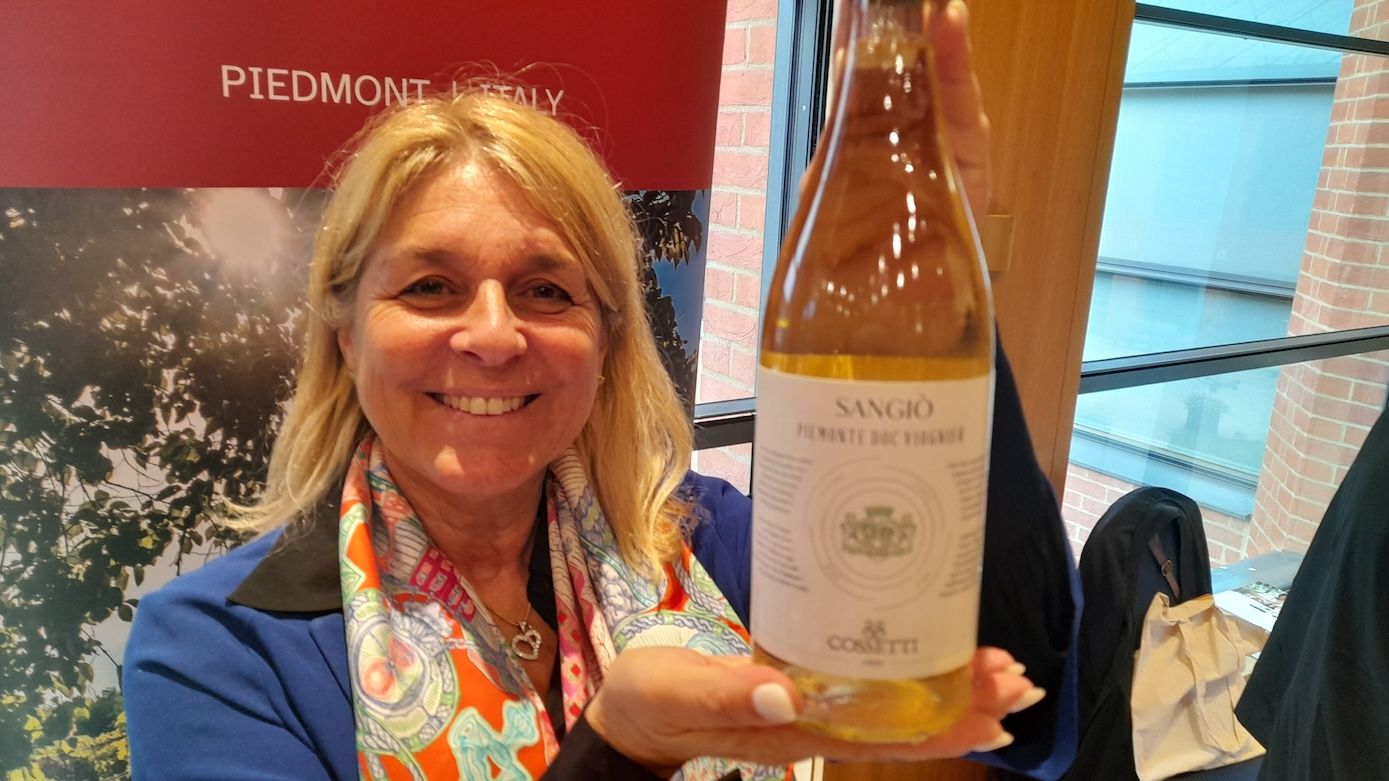While ZONIN1821 is something of a behemoth in the wine industry, with an annual revenue of around €200 million, it still hopes to expand its distribution in the UK, which accounts for a quarter of its turnover. The importer, which also owns seven wine estates in Italy and one in the USA, exports to over 140 countries world-wide and put on an impressive annual portfolio tasting in London last month.
Good business practice
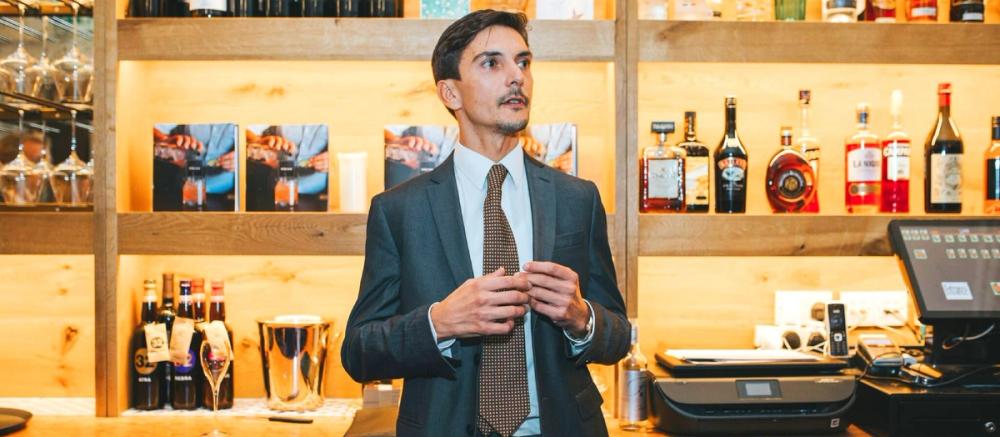
"The logic of unfettered profit without consequences, is no longer synonymous with good business practices," – Michele Zonin
Founded in 1821 by the Zonin family in Veneto, the group has seventh generation descendant brothers who are its president and vice-president. Vice-president, Michele Zonin flew in from Italy, and talked about the company’s philosophy.
“We like to promote our three pillars” Zonin said. “These are ‘Made in Italy’, sustainability and Italian wine culture. Our Prosecco represents the essence of ‘La Dolce Vita’ on a global level. The group’s latest sustainability report - the first one- was published last year in accordance with the Equalitas* standard. We are super happy about that.”
(*The Equalitas certification covers environmental, social and economic sustainability).
“Now, more than ever, the world and consumers at large demand that companies take a stand on sustainability-related issues. For society as a whole the logic of unfettered profit without consequences, is no longer synonymous with good business practices."
"Companies are being tasked to demonstrate responsibility in their work and justify their choices: in the light of this, sustainability cannot be conceived as merely an ‘add-on’ in business but must be one of the foundations of a business model, its corporate culture and its strategic choices.”
Indeed, ZONIN1821 Group’s Tuscan estate, Castello di Albola, was one of the first in Italy to obtain this certification. Similarly, Rocca di Montemassi, also in Tuscany, is both organically and sustainably farmed with biological defence instead of pesticides; green manure; beehives; and 28 hectares maintained as forest to absorb CO2.
Biodiversity is also a priority at ZONIN1821 Group’s Friuli winery Ca’ Bolani, which recently adopted the ‘Carta del Mulino’ (Mill Charter) project, which promotes the spread of pollinating insects. And on the Sicilian estate, Principi di Butera, biodiversity comes from 50 hectares of arable land and 25 of olive trees. Masseria Altemura in Apulia likewise has 88 hectares of arable and 40 of olives.
Tasting the ZONIN1821 wines
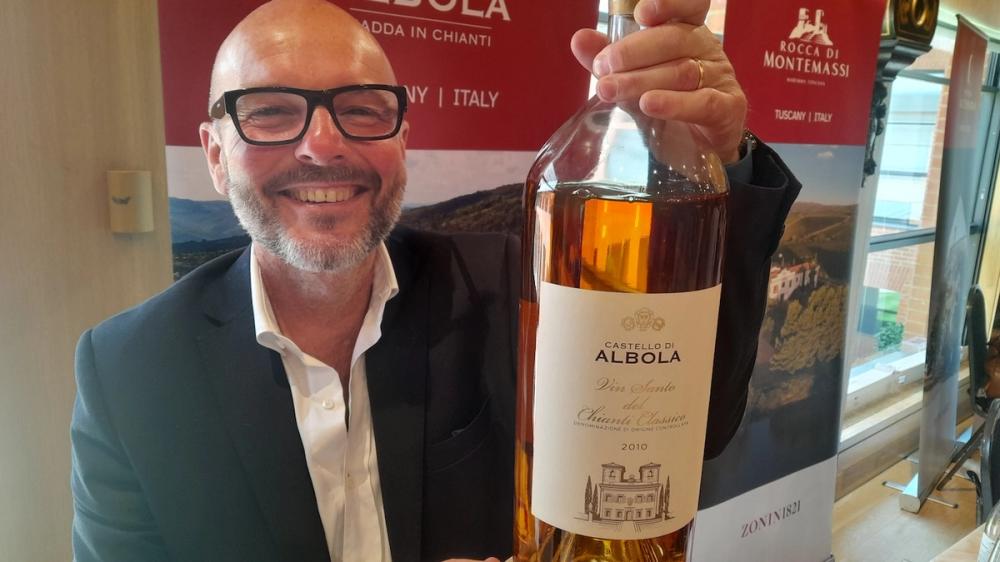
Alessandro Gallo
“Our jewel in Chianti,” the charismatic winemaker Alessandro Gallo called Castello di Albola. One of the highest estates in Tuscany, with 125 hectares of vine planted up to 700 metres, it boasts a magisterial ‘Super Tuscan’ label, Acciaiolo, made from an old single vineyard of Cabernet Sauvignon.
Its Chardonnay Le Fagge 2022, another Toscana IGT label, showed particularly well as did its four different Chianti Classicos. Gallo also makes the wines at Rocca di Montemassi, whose Maremma Toscana DOC Sassabruna 2021, a blend of 30% Cabernet Sauvignon 30% Petit Verdot 30% Syrah and 10% Merlot was outstanding.
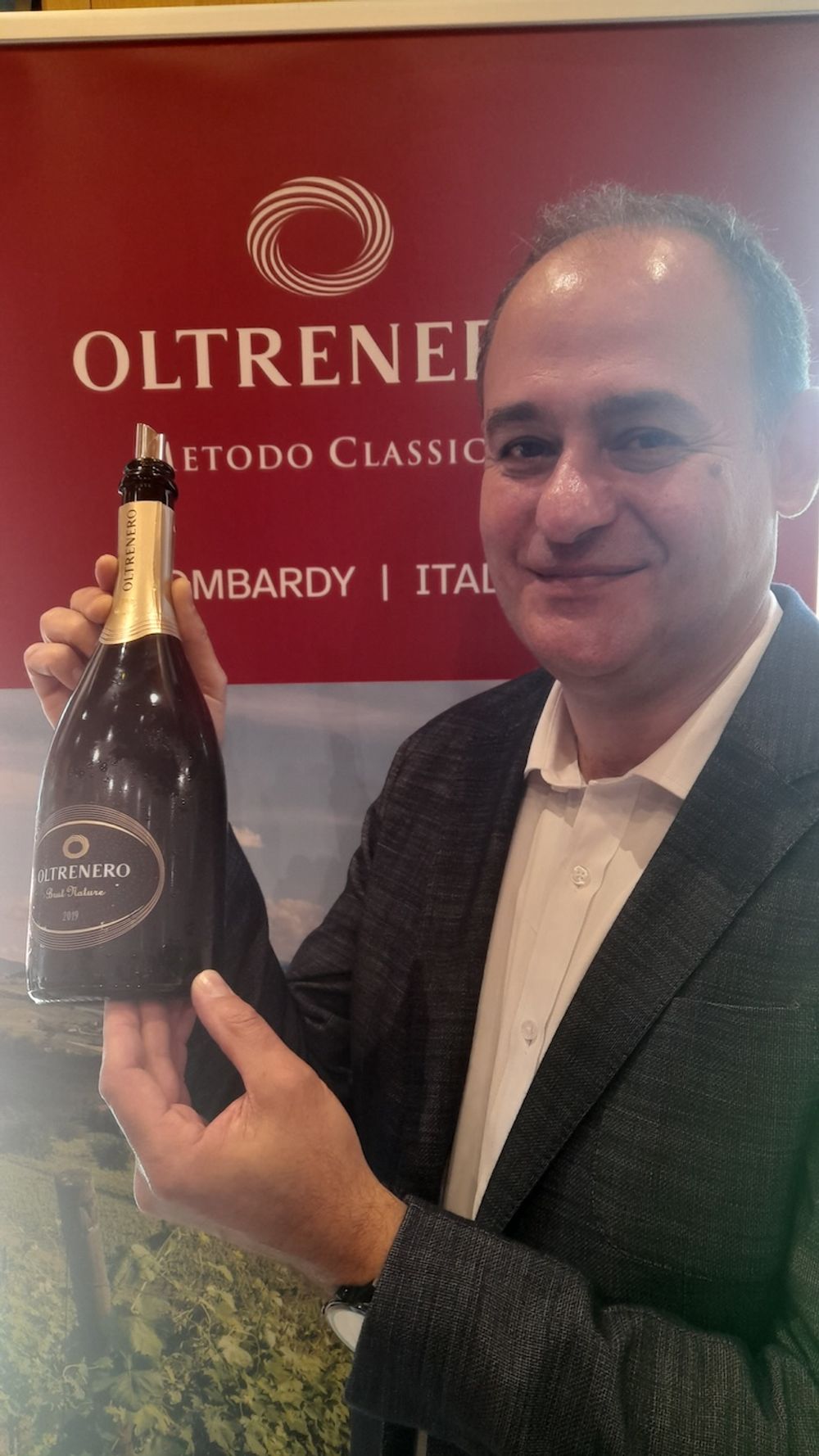
Paolo Tealdi
Another winemaker with overall responsibility for more than one ZONIN1821 Group’s estate was present in Paolo Tealdi. Based in Asti, his Piedmont brief is Poggio Le Coste, but he also crafts the wines at Lombardy producer Oltrenero and Principi di Butera in Sicily. All of Oltrenero's three super-premium wines were made from 100% Pinot Noir. “The area is beautiful for Pinot Noir on mostly clay soils with some sand at 200-300m,” Tealdi said, adding that a new product aged 96 months on the lees would be released (the current trio seeing 36-48 months).
Tealdi also produces two sparkling versions of Nero D’Avola at Principi di Butera - one by tank method and the other by traditional method. The latter, a Pas Dose (zero dosage) 2018, spent 36 months on the lees and was excellent, pairing very well with tiger prawns, avocado, fennel and dill at the food and wine masterclass. Matching well with curry was the same winery’s Insolia Sicilia DOC Carizza 2022, with its sapidity, fresh acidity and minerality.
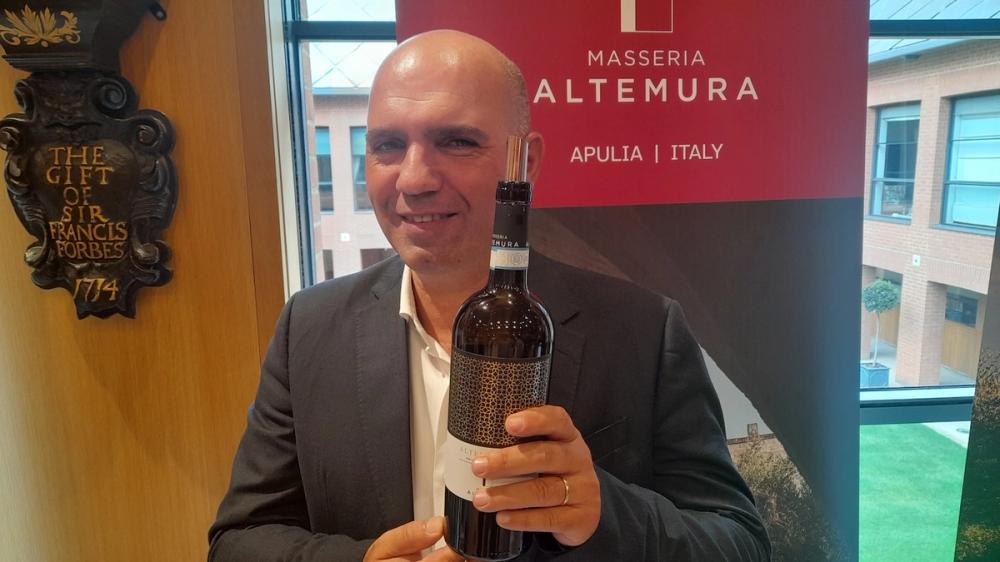
Antonio Cavallo
Masseria Altemura’s Falanghina Salento IGT 2022 was a fine example of the varietal, and, as a specialist producer of Primitivo, it was no surprise their Salento IGT Sasseo 2021 showed impressive richness, structure and generosity of fruit. Aged in 25% new oak, its overt tannins need time to soften, and Antonio Cavallo, the estate's director and viticulturist, suggested it will be at its best at eight years of age.
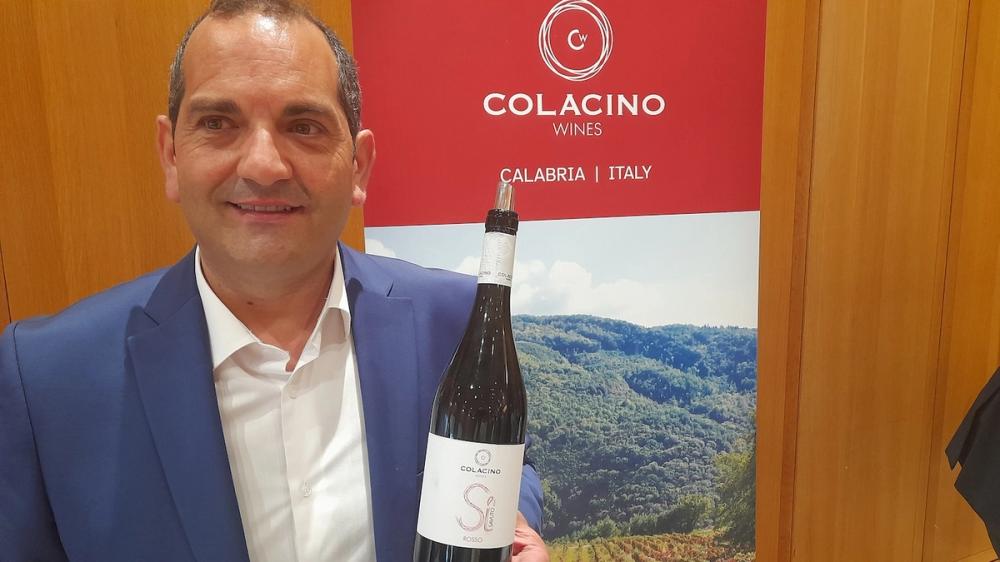
Mauro Colacino
Another southern Italian black grape renowned for its tannins, Magliocco, makes up 100% of Calabrian producer, Colacino Wines’ Savuto Rosso DOC Si. A mid-market wine with appealing cherry notes, this drew the following verdict from winemaker Mauro Colacino: “It is only grown in Calabria, where it originated. It is rustic but with softer tannins than the more mineral Aglianico.” The benefit of 500 metres of altitude was reflected in the wine’s freshness.
The similarly high vineyards (350-650m) of Tenuta del Meriggio, in Campania, tend to provide a very wide diurnal range of 15°C, allowing its impressive range of wines to show unusually high acidity levels, requiring 100% malolactic fermentation in the three whites - Greco di Tufo, Fiano and Falanghina. The owner’s son, Francesco Saverio, also the export manager, spoke eloquently of his family’s desire to increase on-trade sales to the UK, its third biggest export market after the US and Japan.
“The competitive window is shrinking and prices getting lower, with styles moving towards easy-to-drink wines," Saverio said. “Our wines are food-pairing wines…to be enjoyed the fullest they need food. Our oldest vines are 80-year-old Aglianico on mixed soils of volcanic and clay plus sand and gravel. Ten years ago it was impossible to reach 30°C in summer - now it gets to 35°C. But we are lucky the grapes are suited to the environment. Our Taurasi DOCG Aglianico is the Barolo of southern Italy.”
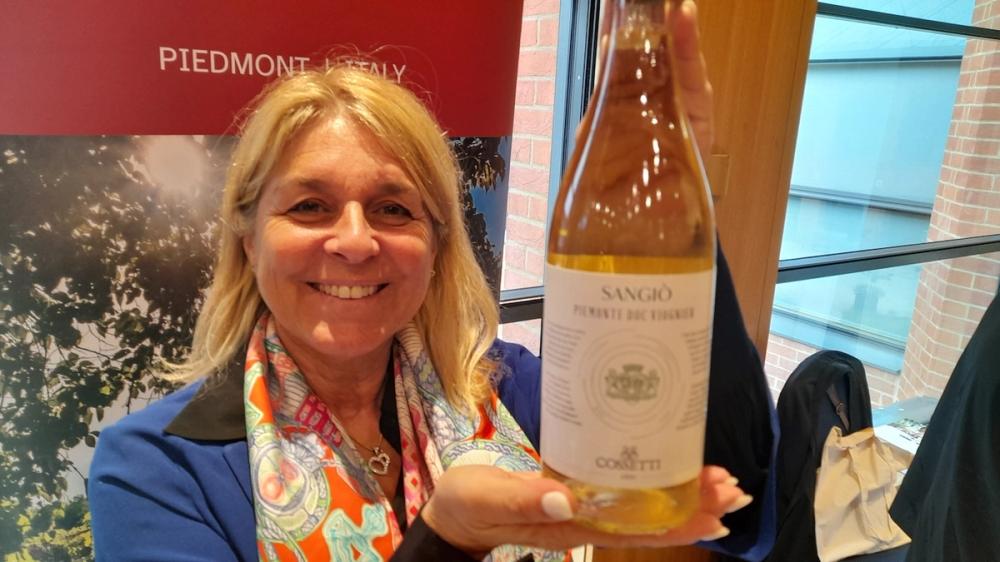
Giulia Cossetti
Talking of Piemonte, Cossetti’s Barolo DOCG Cinquantacinque 2019, is still quite young but with tremendous potential. Drinkable now, though, is Cossetti’s Barbaresco Cinquantotto 2019, whose fruit is enchanting and tannins approachable. With an abv of 14%, the wine is in perfect balance. “2019 was a very, very good year, although 2018 was the best,” co-owner Giulia Cossetti said. “We try to balance the tannins.”
Sancho Garces - the single Spanish producer
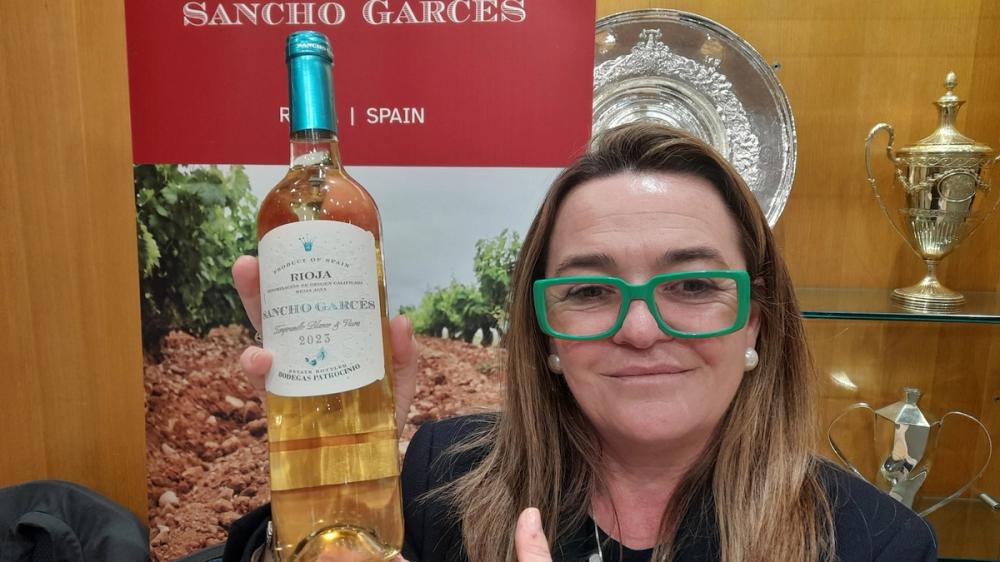
Mariola Varona
The one Spanish producer’s wines that ZONIN1821 Group imports is the co-operative Sancho Garces. Two hundred families who own 400 hectares in Rioja Alta send their grapes for vinification. These include not just Tempranillo and Viura but also Tempranillo Blanco.
“Adding 15% Tempranillo Blanco to the Viura is the best thing that ever happened to Rioja white wine,” Mariola Varona, the co-op’s export director, said. “It gives brightness, friskiness, acidity, fruit character and minerality, and combines so well with the backbone and structure of Viura. It's nicely balanced and very easy drinking.”
It was hard to disagree with Varona, who revealed the enticing Rioja DOC Crianza is ‘one of our best sellers’ (and value at £14.79 RRP).
From the Western Cape – Du Toitskloof
Also good value in the everyday drinking class was the range of another co-operative, Du Toitskloof. Founded in 1962 by six farmers in the Breedekloof district of the western Cape, it has expanded to 12 growers, who own 985 hectares of vines, including Chenin Blanc, Sauvignon Blanc, Chardonnay, Pinotage and Cabernet Sauvignon.
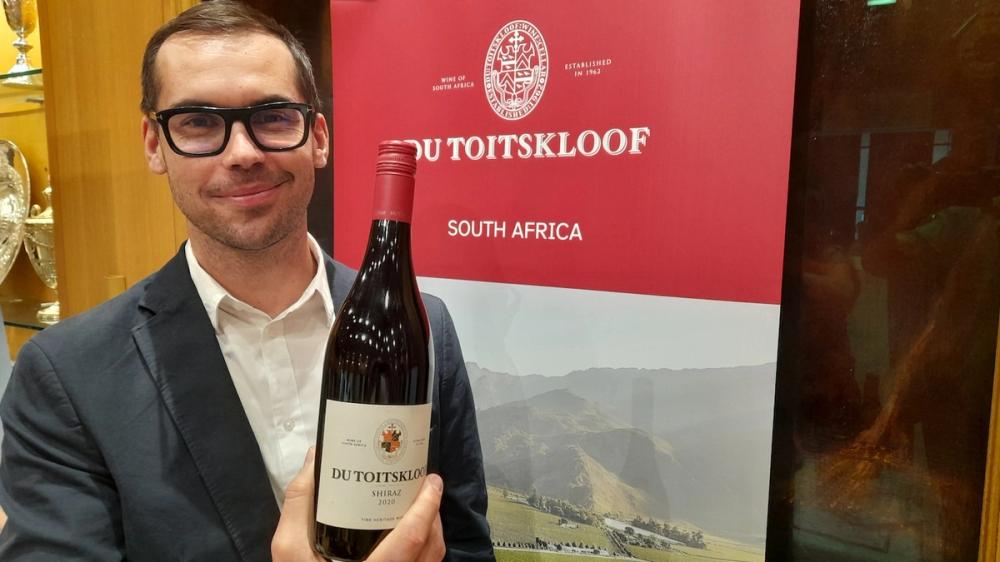
Ed Beukus
“We are a bulk producer, working with supermarkets, but also sell our branded wines through Zonin," export manager Ed Beukus said. “We are Fair Trade accredited, and are selling well here to pubs, bars and restaurants as we have very good quality at a very good price. You have to in a saturated market. Chenin and Shiraz are best sellers, and because the brand has grown so well in South Africa, we have had to start buying in grapes, with a lot of red from Swartland.”
Finally, from across the Atlantic, ZONIN1821 Group is bringing in some high quality red and white wines from its US winery, Barboursville Vineyards. Viognier is a grape that has long flourished in this state, and its Viognier Virginia Appellation 2017, which spent 11 months on the lees, showed very well. So too did its Nebbiolo Reserve Virginia Appellation 2015, with its approachable tannins, and Cabernet Franc Reserve Virginia Appellation 2017.
